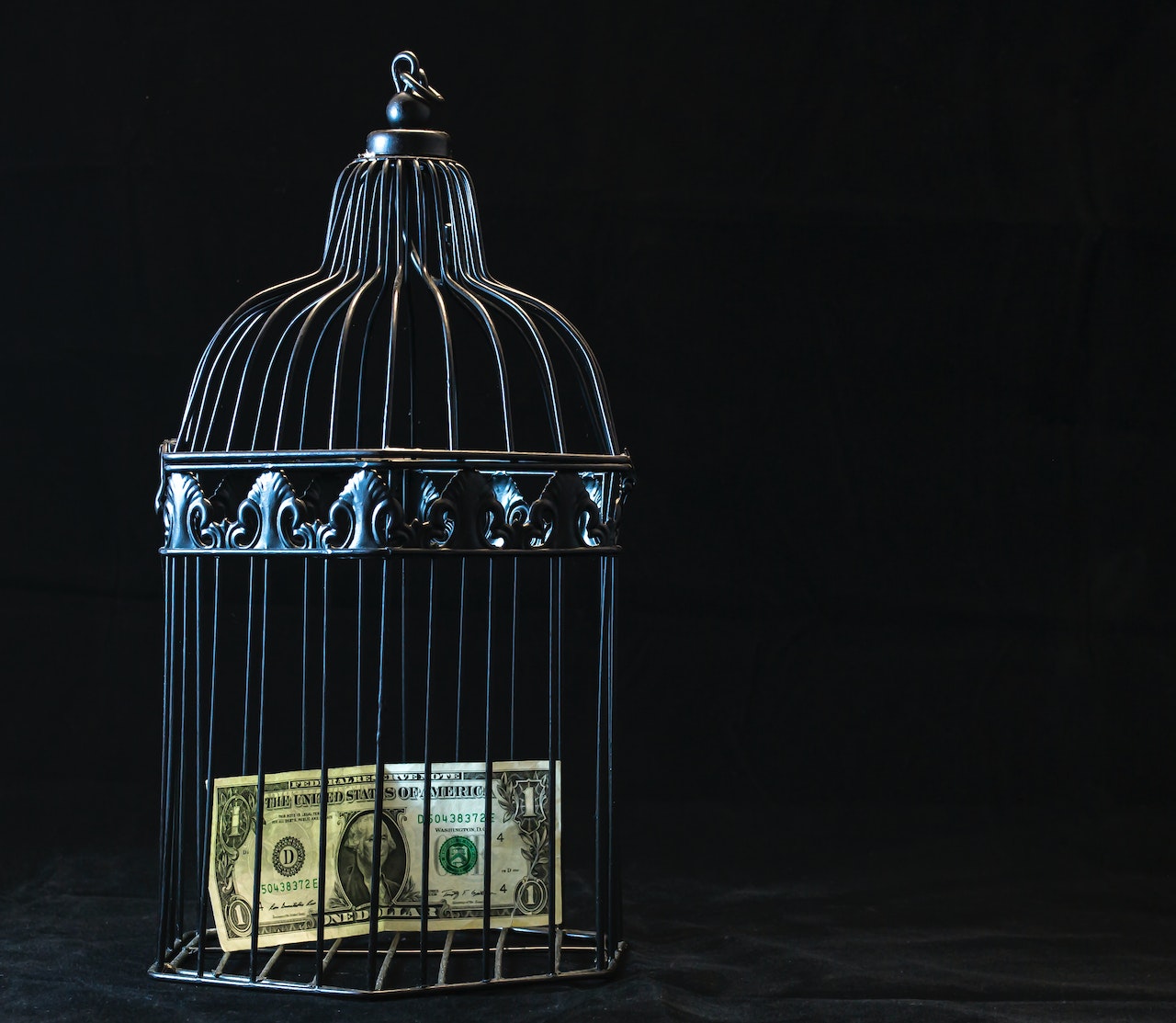Tax Planning For Small Business Owners - Save More And Grow Your Business
As a small business owner, it is important to understand the importance of tax planning to maintain financial stability and growth. Tax planning involves anticipating and proactively making decisions about your taxes, rather than simply reacting to the tax laws at the end of the year. In this article, we will discuss the key strategies for tax planning for small business owners, including tax-saving strategies, tax laws, and record-keeping.
Author:Dexter CookeReviewer:Emmanuella SheaApr 08, 202312K Shares280.8K Views

As a small business owner, it is important to understand the importance of tax planning to maintain financial stability and growth.
Tax planning involves anticipating and proactively making decisions about your taxes, rather than simply reacting to the tax laws at the end of the year.
In this article, we will discuss the key strategies for tax planning for small business owners, including tax-saving strategies, tax laws, and record-keeping.
Managing Personal Finances During A Recession: Key Considerations
In addition to tax planning, it is also important for small business owners to understand the importance of managing their finances during a recession.
A recession can have a significant impact on a small business, and it is important to be proactive in managing your finances to minimize its impact.
Tax Planning For Small Business Owners - Understanding Tax Laws
One of the first steps in tax planning for small business owners is to understand the tax laws that apply to your business.
This includes understanding the different types of taxes, such as income tax, sales tax, and property tax, as well as the tax laws that apply to your business structure, such as a sole proprietorship, partnership, or corporation. It is also important to stay up-to-date on changes in tax laws, as they can have a significant impact on your business.
Tax Planning For Small Business Owners - Tax-Saving Strategies
Once you have a good understanding of the tax laws that apply to your business, it is important to explore tax-saving strategies that can help you minimize your tax bill.
Some of the most common tax-saving strategies for small business owners include taking advantage of tax deductions and credits, such as the home office deduction, the small business health care tax credit, and the self-employed health insurance deduction.
Additionally, it is important to consider strategies for deferring income and maximizing deductions, such as contributing to a retirement plan or setting up a tax-deferred annuity.
Tax Planning For Small Business Owners - Record-Keeping
To take advantage of tax-saving strategies and minimize your tax bill, it is essential to keep accurate and complete records of your income and expenses. This includes keeping receipts and invoices for all business-related purchases, as well as consistently tracking your income and expenses.
In addition to helping you take advantage of tax-saving strategies, accurate record-keeping can also help you in the event of an audit.
Managing Personal Finances During A Recession - Budgeting
One of the most important considerations for managing your finances during a recession is budgeting. Budgeting involves tracking your income and expenses and making adjustments as necessary to ensure that you are spending less than you earn.
This can help you maintain financial stability and minimize the impact of a recession on your finances. In addition to tracking your income and expenses, it is also important to consider ways to reduce your expenses, such as cutting back on discretionary spending and finding ways to save on essential expenses.
Managing Personal Finances During A Recession - Saving
In addition to budgeting, it is also important to have a plan for saving during a recession. This can include creating an emergency fund, which can help you cover unexpected expenses, as well as contributing to a retirement account or other investment vehicle to help you build your wealth over time.
Additionally, it is important to consider ways to increase your income, such as taking on additional work or finding ways to monetize your skills and talents.
Tax Planning For Small Business Owners - Strategies For Maximizing Your Earnings
Small business owners are the backbone of the American economy. They create jobs, drive innovation, and drive growth in their communities. However, running a small business can also be a challenging and stressful experience, especially when it comes to taxes.
With tax laws and regulations constantly changing, it can be difficult for small business owners to keep up with the latest information and make informed decisions about their finances.
One of the most important aspects of running a small business is tax planning. Proper tax planning can help small business owners maximize their earnings and minimize their tax liability.
Know Your Tax Obligations
The first step in tax planning for small business owners is to understand their tax obligations. This includes knowing which taxes you are required to pay, the due dates for each tax, and the tax rates that apply to your business.
Small business owners can find this information on the IRS website or by speaking with a tax professional.
Use Tax-Deductible Expenses
Small business owners can reduce their taxable income by taking advantage of tax-deductible expenses. This includes things like business equipment and supplies, rent, utilities, and travel expenses.
By keeping accurate records of these expenses, small business owners can reduce their taxable income and lower their tax liability.
Create A Retirement Plan
Small business owners can also reduce their taxable income by contributing to a retirement plan. There are several types of retirement plans available to small business owners, including traditional and Roth IRAs, SEP IRAs, and SIMPLE IRAs.
By contributing to a retirement plan, small business owners can reduce their taxable income and save for the future.

14 Biggest Tax Write Offs for Small Businesses! [What the Top 1% Write-Off]
Take Advantage Of Tax Credits
Small business owners can also reduce their tax liability by taking advantage of tax credits. There are many tax credits available to small business owners, including credits for hiring employees, investing in renewable energy, and offering health insurance to employees.
By taking advantage of tax credits, small business owners can lower their tax bills and keep more of their hard-earned money.
People Also Ask
What Is The First Step In Tax Planning For Small Business Owners?
The first step in tax planning for small business owners is to understand their tax obligations, including which taxes they are required to pay, the due dates for each tax, and the tax rates that apply to their business.
What Are Some Tax-deductible Expenses That Small Business Owners Can Take Advantage Of?
Small business owners can take advantage of tax-deductible expenses such as business equipment and supplies, rent, utilities, and travel expenses to reduce their taxable income and lower their tax liability.
What Types Of Retirement Plans Are Available To Small Business Owners?
Small business owners can contribute to traditional and Roth IRAs, SEP IRAs, and SIMPLE IRAs to reduce their taxable income and save for the future.
What Tax Credits Are Available To Small Business Owners?
Small business owners can take advantage of tax credits for hiring employees, investing in renewable energy, and offering health insurance to employees to lower their tax bills and keep more of their hard-earned money.
Conclusion
In conclusion, tax planning for small business owners is an essential aspect of running a small business.
By understanding their tax obligations, taking advantage of tax-deductible expenses, creating a retirement plan, and utilizing tax credits, small business owners can maximize their earnings and minimize their tax liability.
Proper tax planning is a key part of building a successful and financially stable business. Additionally, during economic downturns, small business owners need to manage their finances carefully to ensure that they have enough money to cover their expenses and protect their financial well-being.
By following these tips and seeking the advice of a tax professional, small business owners can make informed decisions about their finances and achieve their financial goals.
Jump to
Managing Personal Finances During A Recession: Key Considerations
Tax Planning For Small Business Owners - Understanding Tax Laws
Tax Planning For Small Business Owners - Tax-Saving Strategies
Tax Planning For Small Business Owners - Record-Keeping
Managing Personal Finances During A Recession - Budgeting
Managing Personal Finances During A Recession - Saving
Tax Planning For Small Business Owners - Strategies For Maximizing Your Earnings
People Also Ask
Conclusion

Dexter Cooke
Author
Dexter Cooke is an economist, marketing strategist, and orthopedic surgeon with over 20 years of experience crafting compelling narratives that resonate worldwide.
He holds a Journalism degree from Columbia University, an Economics background from Yale University, and a medical degree with a postdoctoral fellowship in orthopedic medicine from the Medical University of South Carolina.
Dexter’s insights into media, economics, and marketing shine through his prolific contributions to respected publications and advisory roles for influential organizations.
As an orthopedic surgeon specializing in minimally invasive knee replacement surgery and laparoscopic procedures, Dexter prioritizes patient care above all.
Outside his professional pursuits, Dexter enjoys collecting vintage watches, studying ancient civilizations, learning about astronomy, and participating in charity runs.

Emmanuella Shea
Reviewer
Emmanuella Shea is a distinguished finance and economics expert with over a decade of experience. She holds a Master's degree in Finance and Economics from Harvard University, specializing in financial analysis, investment management, and economic forecasting.
Her authoritative insights and trustworthy advice have made her a highly sought-after advisor in the business world.
Outside of her professional life, she enjoys exploring diverse cuisines, reading non-fiction literature, and embarking on invigorating hikes.
Her passion for insightful analysis and reliable guidance is matched by her dedication to continuous learning and personal growth.
Latest Articles
Popular Articles
